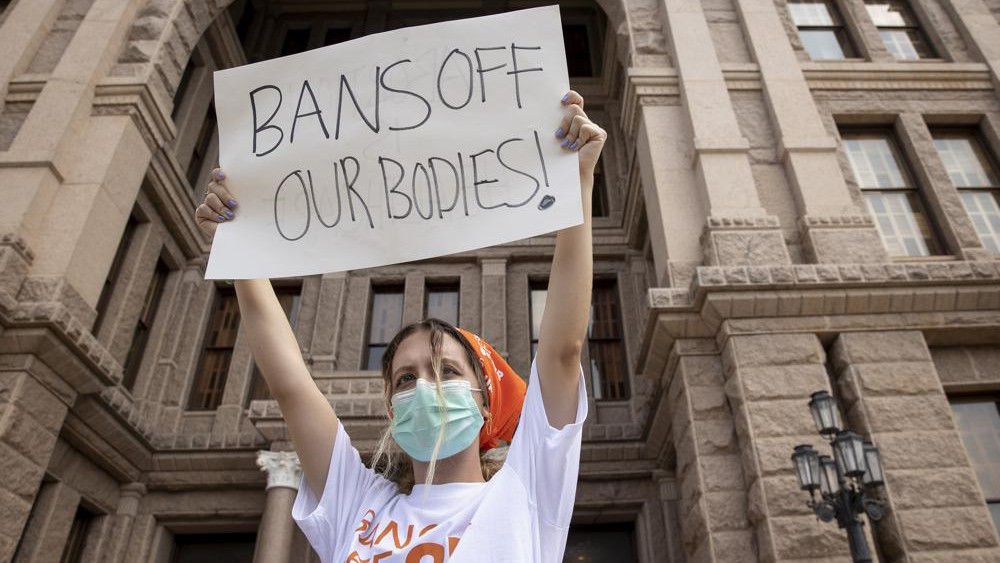The Department of Justice announced Friday that it will ask the Supreme Court to block a restrictive Texas abortion law while legal challenges against the controversial statute move ahead.
The law, known as Texas Senate Bill 8, blocks abortions once cardiac activity is detected, usually around six weeks – before some women know they are pregnant.
"The Justice Department intends to ask the Supreme Court to vacate the Fifth Circuit’s stay of the preliminary injunction against Texas Senate Bill 8,” DOJ spokesman Anthony Coley wrote in a statement. Coley did not specify how quickly the request will take place.
The latest defeat for clinics came Thursday night when a federal appeals panel in New Orleans, in a 2-1 decision, allowed the restrictions to remain in place for a third time in the last several weeks. Only once has a court moved to put the restrictions on hold — and that order stood for only 48 hours.
During that brief window, some Texas clinics rushed to perform abortions on patients past six weeks, but many more appointments were canceled after the 5th Circuit moved to swiftly reinstate the law last week.
The Biden administration was under pressure from abortion rights supporters to go to the Supreme Court even before the announcement. The nation's highest court already once allowed the restrictions to take effect, but did so without ruling on the law’s constitutionality.
Since the law took effect Sept. 1, Texas women have sought out abortion clinics in neighboring states, some driving hours through the middle of the night and including patients as young as 12 years old. The law makes no exception for cases of rape or incest.
A 1992 decision by the Supreme Court prevented states from banning abortion before viability, the point at which a fetus can survive outside the womb, around 24 weeks of pregnancy. But Texas’ law has outmaneuvered courts so far because it offloads enforcement to private citizens. Anyone who brings a successful lawsuit against an abortion provider for violating the law is entitled to claim at least $10,000 in damages, which the Biden administration says amounts to a bounty.
Texas had roughly two dozen abortion clinics before the law took effect, and operators have said some may be forced to close if the restrictions stay in place for much longer.
The stakes are already high in the coming months over the future of abortion rights in the U.S. In December, the new conservative majority on the Supreme Court will hear Mississippi’s bid to overturn the landmark Roe v. Wade decision that guarantees a woman’s right to an abortion.
Attorney General Merrick Garland has called the law “clearly unconstitutional” and warned that it could become a model elsewhere in the country unless it’s struck down.
Eighteen state attorneys general on Wednesday, mostly from Republican-controlled states, urged the Supreme Court to let the restrictions stand while accusing the federal government of overstepping its authority in bringing the challenge in the first place.
But more than 20 other states, mostly run by Democrats, urged the lower court to throw out the law last month.
The Associated Press contributed to this report.



